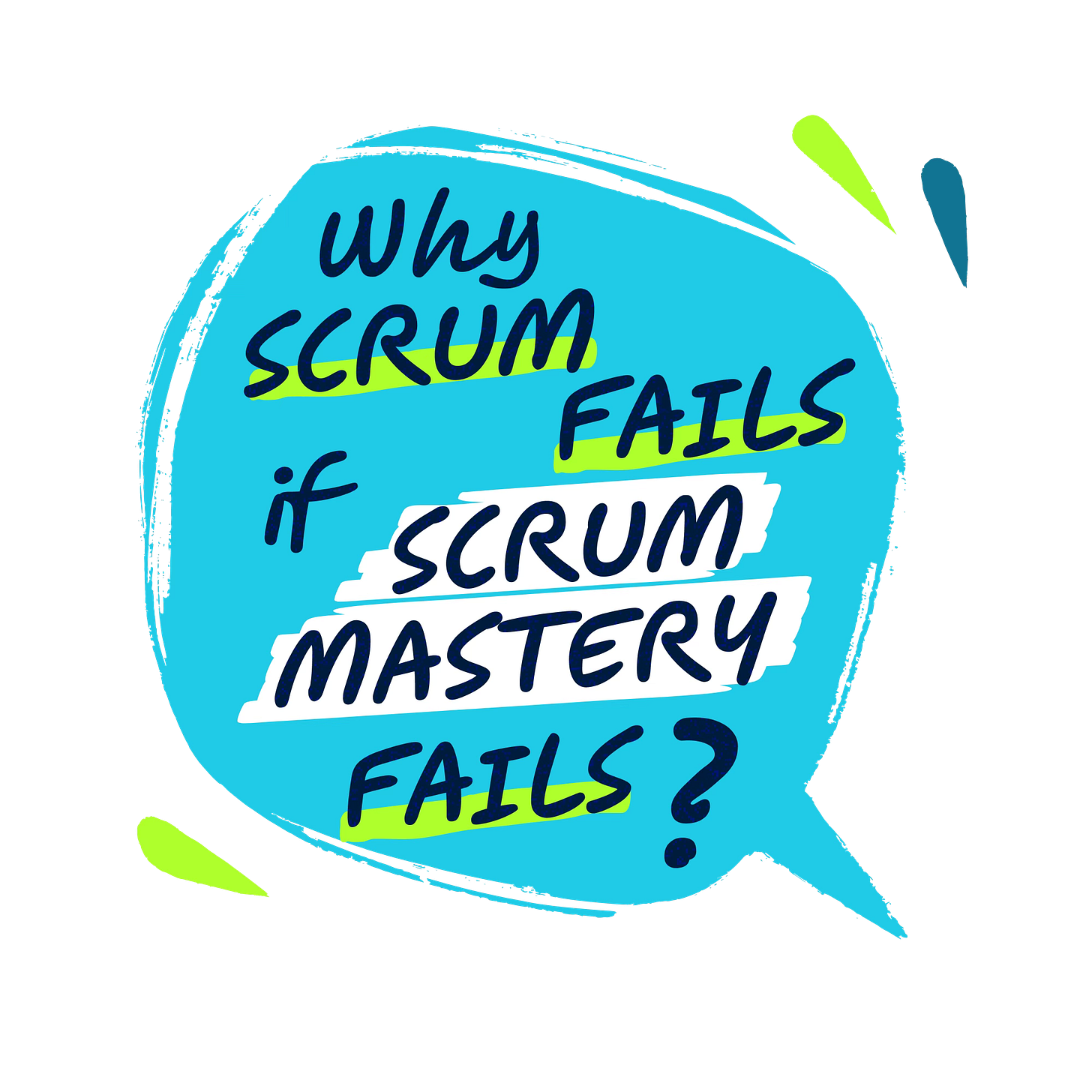Why Scrum Fails if Scrum Mastery Fails?
Each aspect of the Scrum Master's accountability is interwoven with the effectiveness and success of the team. Organisations that want to succeed must invest in having servant leadership skills.
The success of Scrum lies significantly in the team’s understanding of Scrum and the effectiveness of the Scrum Master.
The Scrum Master is essential in understanding why we need this way of working in the first place, why empiricism is preferred in the complex world of product development, and how to help self-managed teams thrive.
Without relevant Scrum Mastery skills, the team may struggle to be as effective as intended.
Here is why Scrum fails if the Scrum Master fails:
1. Neglecting Team Dynamics:
Failure to understand team dynamics and address interpersonal issues or to foster a collaborative team environment can lead to dysfunction. This includes managing varying personalities, encouraging participation from quieter members, and ensuring that dominant voices do not overshadow others. A balanced team dynamic is crucial for effective collaboration and innovation.
2. Inadequate Impediment Removal:
One of the core responsibilities of a Scrum Master is to identify and facilitate the removal of obstacles that impede the team's progress. Suppose the Scrum Master cannot effectively address these impediments. In that case, the team's workflow could be better, resulting in delays, decreased effectiveness, and frustration among team members, undermining the iterative progress that Scrum aims to achieve.
3. Inadequate Transparency:
Transparency is a cornerstone of Scrum, facilitating trust and visibility. Suppose the Scrum Master fails to ensure that progress, challenges, and plans are visible to all team members and stakeholders. This can create confusion and misalignment.
4. Failure to Adapt to Change:
If the Scrum Master is resistant to change or needs to guide the team through pivots effectively, it can derail the team's ability to respond to new information and evolving customer needs. Adaptability is essential for staying competitive and ensuring the product meets market demands.
5. Insufficient Focus on Value Delivery:
The Scrum Master should constantly steer the team towards delivering value to the customer. If the Scrum Master fails to keep the team focused on delivering incremental value with each sprint, the team might get bogged down with non-essential work. This misalignment can lead to a product failing to meet user needs or expectations, ultimately impacting customer satisfaction and business outcomes.
6. Overlooking Cultural Fit:
The Scrum Master must ensure that Scrum's core principles align with the organisation's culture. If a cultural mismatch exists, such as a traditional command-and-control environment trying to implement Scrum, the Scrum Master must work to bridge this gap. Overlooking cultural fit and the Scrum Master’s inability to act as a change agent may lead to Scrum's failure to take root within the organisation.
Beyond the standard responsibilities, a Scrum Master is accountable for nurturing a positive team culture, ensuring continuous improvement, maintaining transparency, the ability to adapt to change, focusing on delivering value and aligning Scrum with organisational culture.
A highly competent Scrum Master champions the principles and values that make Scrum a robust framework for delivering exceptional products. Investing in skilled Scrum Masters who embody these qualities is crucial for any organisation aiming to consistently deliver value in an empirical way.



